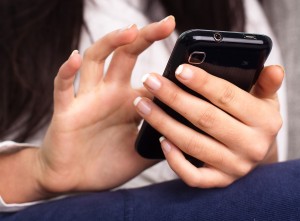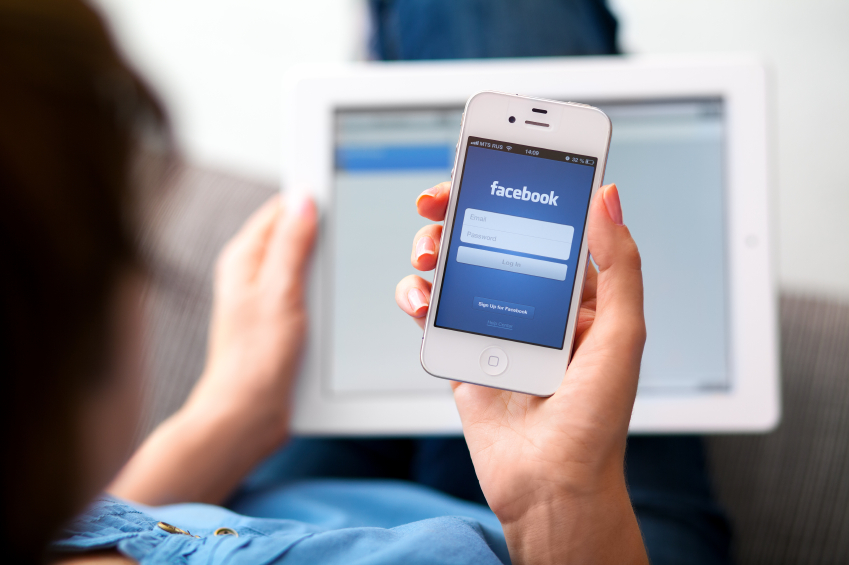A recent study from the University of Sussex found that those who did more media multitasking had smaller density brains
All those times you’re on your laptop, your phone and maybe even your tablet at the same time might not be doing your brain the biggest favor. A recent study from the University of Sussex found that a section of the brain was smaller for people who did more media multitasking every day.
A group of 75 healthy adults had their brains scanned and were given a questionnaire to measure how much multitasking they did on a daily basis. What did these researchers find? It turns out that those who multitasked more had less density in their anterior cingulate cortex (ACC), a part of the brain linked to higher cognitive processes, emotions and motivation.

The ACC, the part of the brain measured to be smaller, is also part of the default mode network. This is the section of the brain that becomes active when you aren’t doing much of anything – a bit like your brain in neutral – and is an important part of everyday brain function. For example, when you’re waiting for the bus or the train and you don’t have a smartphone, your mind starts to wander around what’s going on in your day, things that have happened to you or other random, passing thoughts. That blank state of mind is when the default mode network activates and rather than being useless, the processing your brain is doing during those so-called blank moments is important to your wellbeing as its when you process emotions and memories from the short-term into the future.
‘Those moments doing nothing are important for the brain,’ says Dr Royta Kanai, one of the authors of the media multitasking study. ‘It helps us organize memory and future plans. But, now we fill up all the time reading emails or checking Facebook on smartphones, and that really deprives us of this precious blank mind time.’
All of that time spent on liking, following, posting and tweeting doesn’t give the brain enough time to rest. Without a regular blank state in your bran, your mind doesn’t have the opportunity for reflection, a tool in improving memory. So, if too much multitasking is making us dumber, can we ever get this part of our brains back?
It looks like with brain training you just might. A study on London taxi drivers found that after learning all the street names and routes required to be a registered driver, their brains changed and developed. The brain region for navigation, called the hippocampus, actually grew larger with the taxi drivers’ training according to the University College London study.
If you’ve already checked your smartphone or have fiddled with your iPad 26 times today you might not be giving your brain enough time in a blank state. With so much free time spent on social media, reading emails and browsing the internet, Dr Kanai suggests finding ways to activate that blank state of mind more often to combat the possible effects of media multitasking and improve your focus.
‘Trying some sort of meditation, more sleep and mindfulness training may really help us focus on what’s important,’ suggests Dr Kanai.
There are still a few questions left open from the study. While testing found that those who multitask more have smaller brains, the study couldn’t determine whether this was an effect of the multitasking or if those who multitasked more generally have smaller brains.
‘It’s possible that people with small grey matter in this brain region have a tendency to do more multitasking every day,’ Dr Kanai says, ‘perhaps because they don’t have the ability to suppress their urge to pay attention to distractors. But, the opposite cause or interaction is more interesting; there is a possibility that multitasking actually influences the brain.’
With a huge amount of media and technology being used throughout the day, it is possible that those who multitask more are less able to ignore distractions around them. A study from the American National Academy of Science found that switching between tasks and blocking distractions was harder for people who multitask.
While Dr Kanai’s study only found a link between multitasking and brain size, he’s working on additional studies to determine the cause. Testing is currently happening in India on people who are being taught to use computers and are having their multitasking activity tracked. Their brains will be scanned before and after the study to determine if the media multitasking is actually causing the brain to change.
‘I think in five years it’s going to become impossible to study that because probably everyone will be online,’ says Dr Kanai. ‘I’m really excited to see how the internet and a multitasking environment changes the way our brain works.’
Whether or not media multitasking is shrinking the brains or that smaller-brained people are the ones multitasking, giving your brain the opportunity to rest in a blank state can improve your focus and help fix any negative outcomes from too much multitasking. So if you’ve already sent 30 tweets today between checking your email and catching up on Facebook, taking a break for some mindfulness might do your brain some good.

READ: How to meditate
READ: 7 things you can do right now to feel happier
READ: 14 ways to find calm in London
READ: Heard of mindfulness meditation? Get ready for the mindful eating diet.
Want more on what social media does to your brain?
READ: Your brain on TWITTER.
Like this article? Sign up to our newsletter to get more articles like this delivered straight to your inbox.






















































